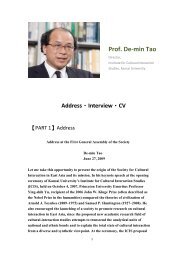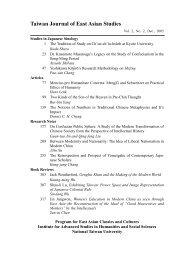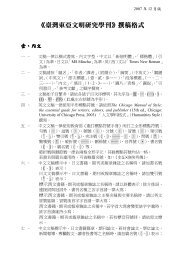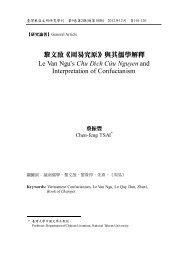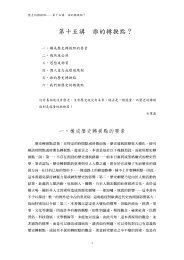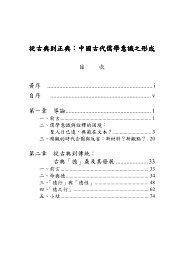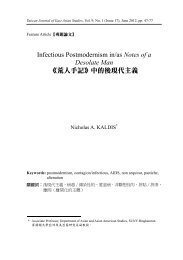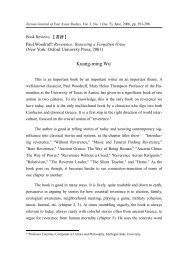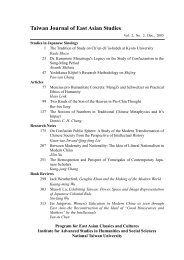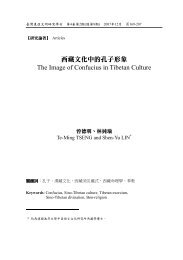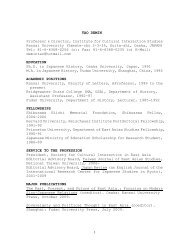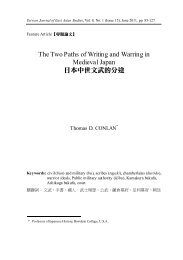臺灣東亞文明研究學刊 - 東亞經典與文化研究計畫 - 國立臺灣大學
臺灣東亞文明研究學刊 - 東亞經典與文化研究計畫 - 國立臺灣大學
臺灣東亞文明研究學刊 - 東亞經典與文化研究計畫 - 國立臺灣大學
Create successful ePaper yourself
Turn your PDF publications into a flip-book with our unique Google optimized e-Paper software.
Nicholas T. PHILLIPSON Theorising the Problems of Small Nations in the Enlightenment 233<br />
aware, his own country was not short of noblemen and gentlemen who would be<br />
prepared to co-operate with the English court if the price was right.<br />
Fletcher was to argue that these conditions could never be met by absolute<br />
monarchies. The problem was to envisage a system of limited monarchy appropriate<br />
to a great, composite monarchy. This was a question that was addressed to Scottish<br />
and English audiences. Like most Scots, he regarded the existing regal union as the<br />
root of Scotland's present problems. It had encouraged the English court to meddle<br />
in the business of the Scottish parliament and to corrupt its nobility. Its wars had<br />
disrupted the country's trade and its greedy nobility had rackrented their estates and<br />
ruined the country's agriculture to pay for an increasingly luxurious style of living.<br />
His message was that Britain, like the other enormous monarchies of the modern<br />
world Britain would only function as a politically viable state if it was rebuilt on<br />
new foundations and, for Fletcher, that meant drastically reducing the political and<br />
economic power of London and the Court and returning it to the regions and<br />
nations. In one of his last pamphlets he developed a Utopian vision of modern<br />
Britain as a state which had been divided into twelve equal semi-sovereign nations,<br />
each economically viable, each with its own political institutions, its own militia<br />
and its own capital city. Indeed in a visionary moment, Fletcher went so far as to<br />
envisage a free, stable European state system reconstructed, on such principles, its<br />
destinies in the hands of self governing, self-sufficient nations rather than its kings<br />
and emperors. And while such a system could never guarantee a state of perpetual<br />
peace,<br />
[……] yet certainly some constitutions of government are better fitted to<br />
maintain the public tranquillity than others. And in place of the continual<br />
great and ruinous wars, which questions about the succession of princes,<br />
and their ambitious designs, have intailed upon the world, things might be<br />
brought to less frequent contentions, and the publick animosities either<br />
ix



